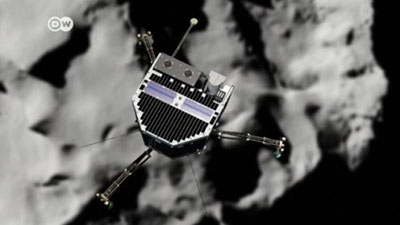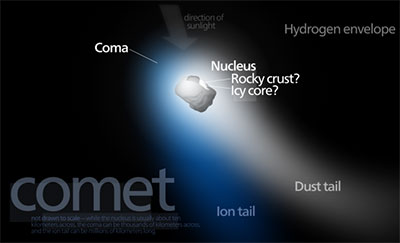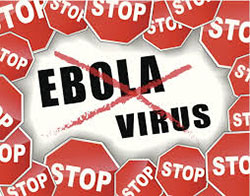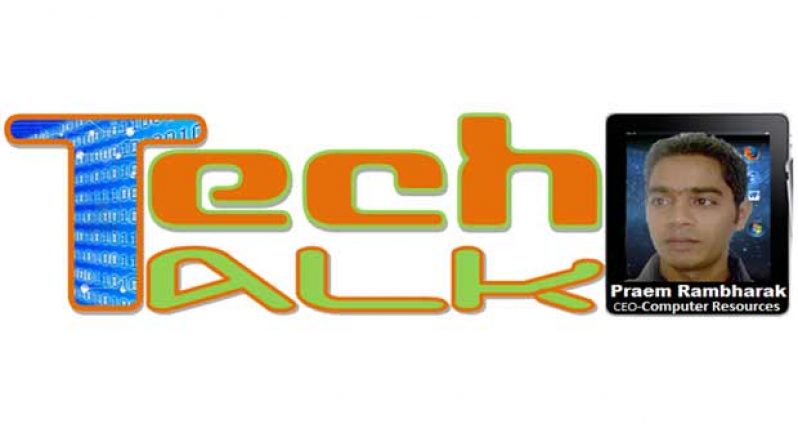Man has set foot on a comet! Hurtling dusty snowballs that orbit the sun at unprecedented speed and hold the secret on how our solar system was formed 4.5 billion years ago.
A comet is an icy small Solar System body, when passing close to the Sun, heats up and begins to outgas, displaying a visible atmosphere or coma, and sometimes also a tail. These phenomena are due to the effects of solar  radiation and the solar wind upon the nucleus of the comet.
radiation and the solar wind upon the nucleus of the comet.
Human exploration of space made history with the European Space Agency successfully making the first man-made object land on a comet, to trace the origins of life on Earth. There were cheers and hugs at the control room in Darmstadt, Germany after the signal was confirmed.
Timeline of the probe’s journey
The descent to the surface of Comet 67P/Churyumov-Gerasimenko took around seven hours, during which the lander took measurements of the environment around the comet. It also took images of the final moments of descent and sent it back to ESA.
Once attached to the two-mile-long comet’s surface with a pair of explosive harpoons, Philae will begin to take samples from the comet. Philae cannot send its data to Earth directly – it must do it via Rosetta.
The billion euros Rosetta was launched in 2004 and arrived at Comet 67P/Churyumov-Gerasimenko on August 6, 2014. It is the first mission in history to rendezvous with a comet, escort it as it orbits the Sun, and deploy a lander to its surface.
Rosetta is an ESA mission with contributions from its member states and NASA. Rosetta made history by orbiting its target and gathering the most detailed information so far on the composition of the comet’s nucleus, the chemical composition of the gaseous coma surrounding the nucleus, and a detailed surface map of the nucleus.
The biggest challenge for the landing was the very low gravity on the 4 km-wide ice mountain failing which it could have bounced off the surface of the comet. Philae deployed foot screws and harpoons to try to fasten its position once it landed.
Scientists believe comets hold vital clues about the original materials that went into building the Solar System. Some say it was the vital instrument responsible for delivering water to the planets.
Since the rendezvous, Rosetta has been mapping the comet’s surface; making important measurements of its gravity, mass and shape; assessing its gaseous, dust-laden atmosphere; and probing its plasma environment.
Rosetta released Philae at a distance of approximately 22.5 km from the centre of the comet. The first sequence of surface science experiments will begin about an hour after touchdown and will last for 64 hours, constrained  by the lander’s primary battery lifetime.
by the lander’s primary battery lifetime.
Longer-term study of the comet by Philae will depend on for how long and how well the batteries are able to recharge, which in turn is related to the amount of dust that settles on its solar panels.
The Rosetta orbiter will continue to study the comet and its environment using its 11 science instruments as they orbit the Sun together.
Google will double your donation to fight Ebola.
The goal is to raise a total of $7.5 million for non-profits working to stop the spread of the deadly virus in West Africa.
Google launched a website Monday where anyone can contribute as little as $10 or as much as $1,000. The company will then match each dollar donated with two more. 
The proceeds will be evenly distributed among four charities: Doctors Without Borders, International Rescue Committee, Partners in Health and Save the Children. Google said it will pay all transaction fees so that the full amount is donated to the charities. In addition, Google plans to contribute $10 million to seven charities involved in Ebola relief.
Larry Page, one of the co-founders of the internet search engine, said his family fund will donate another $15 million. “Our hearts go out to everyone whose lives have been touched by this tragedy,” Page wrote in a blog post.
As of last week, health officials estimate that more than 13,000 people have been infected with Ebola and 4,818 people have died from the infectious disease.
Executives in the technology industry have been among the biggest donors since the worst outbreak of Ebola started about six months ago.
Facebook founder Mark Zuckerberg pledged in October to give $25 million, while Microsoft co-founder Paul Allen has committed $100 million to the cause. So get on board!




.png)









